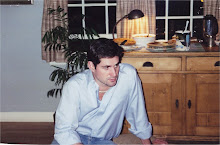
Walt Whitman is the bridge connecting the romantic idealism of the early 19th century and the realism and changed realities of the post-war period. He greatly impacted American literature with the publication of Leaves of Grass in 1855, and he is often referred to as the father of modern poetry. He believed poetry should embrace every aspect of life, and in his poems he wrote without apology on subjects that had previously been excluded as ugly or shameful. He embodied the modern democratic man who would speak of all things without hindrance. His poetry celebrates the "divine condition" of being alive with an intensity that unites all forms of life without discrimination. He was the voice of all people and all things.



